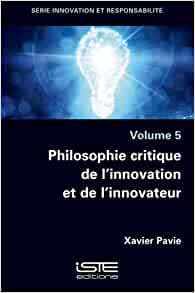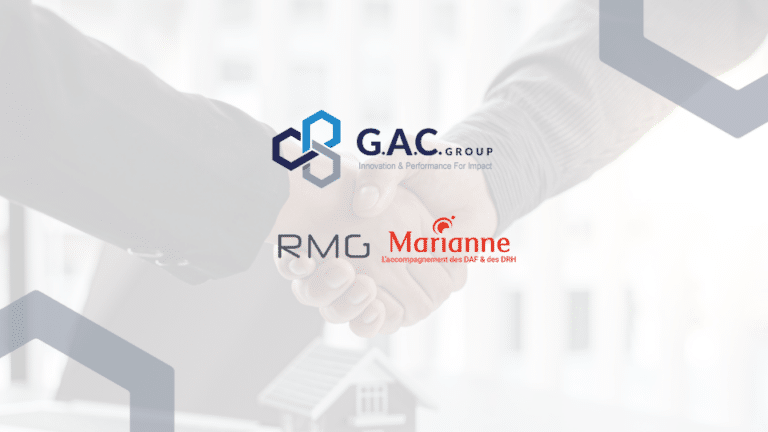This interview precedes the webinar of July 09, 2020Xavier Pavie will discuss open, sustainable and responsible innovation with leaders of the Hack The Crisis France, Tech For Good France and G.A.C. Group movements.
Xavier PAVIE is a philosopher, Professor at ESSEC Business School, Academic Director of the Grande Ecole program in Singapore and of the iMagination center. He holds a doctorate in philosophy (HDR) and is a research associate at the Institut de Recherches Philosophiques at Paris Nanterre University, and the author of numerous books on responsible innovation. He has also worked for ten years in the corporate world in innovation-related positions.
His journey is a combination between the world of management and philosophy. He therefore takes a sharp look at these two worlds and asks himself the question of whether their reconciliation is possible (especially in his penultimate book which received the award for best management book in 2019).
He was notably in charge of defining responsible innovation with the support of a network of international universities within a project supported by the European Commission.
Last published work: Critical philosophy of innovation and the innovator (ISTE 2020)
What are or have been the excesses of innovation?
First of all you have to keep in mind that too often, we don't really know what we're talking about when we talk about innovation. We must not define innovation according to what we think, but according to what it is or what it is not: concretely!
From 1911, with Schumpeter, innovation is positioned as the engine of capitalism and it is defined as the industrial exploitation of inventions, a dissemination with an economic result which will make it possible to develop profitability. This way of thinking has never really been questioned ! We have never stopped innovating that way.
Everything is innovation. We are surrounded by innovations.
Finally, there is no other choice since Schumpeter: to develop a business, you have to innovate according to the 4 categories: product, process, organization and marketing. Then, the choice of innovation: incremental, disruptive or paradigmatic. This is what then gives the 12 axes of innovation on which our companies are based.
For more than 100 years, we have not ceased to optimize innovation processes with this same purpose in order to ensure that the most profitable innovations are developed as quickly and as often as possible.
Today, we all always have the same way of thinking about innovation.
The problem is that for the past 30 years we have known that each time we innovate we can harm the planet, humans or even harm the political system which is here the life of the city: yet, these are indeed the 3 major axes of the crises that we are currently encountering ...
We do not think innovation in order to meet these challenges, on the contrary, we continue to fuel them : the smartphones that we all use and of which we want the latest model, for example, are made of extremely polluting materials and often extracted in areas of armed conflict; transhumanism questions our human future or even the cameras which record the slightest deeds and gestures of citizens in China, for example, question our future freedoms ...
What is phenomenology of Husserl, and his "back to the things themselves"?
My work has always sought to improve innovation for the common good, while improving the performance of organizations, even if this may seem paradoxical! For this, I have had different approaches: first how to integrate responsibility into innovation process, then how an innovation can be “care”, that is to say benevolent. More recently, I have tackled the innovator himself based on my work in philosophy around spiritual exercises: how can we try to help innovators to let go of "passions" over which no one is really able to control themselves (money, fame, power ...) and on the contrary, which maintain a certain leitmotif during a professional life in particular.
To note that in my last book I also looked for what could be the development of a non-standard innovation, that is to say an innovation which does not simply call for profit, but which calls for something else around the common good.
phenomenology of Husserl can be summarized through the famous phrase of the philosopher: "back to the things themselves", that is to say seeking to look at things as such, in their essence and not with our usual managerial reflexes, for example. To do like that, we need to vary the different points of view, not just starting from our own and integrating that of the consumer, of policies, of all the stakeholders. The objective is not as usual to say "I will improve my innovations" (type Design Thinking, Business Model Canvas), but to know if the innovation we are going to bring to the market at makes sense to us.
The notion that Husserl poses is that we have to suspend our judgment a bit and look at things from different angles… This is what I propose with innovation: to offer an innovation that does not (only) seek profit, but who (also) seeks a common good.
For a number of years, innovators have therefore been crushed by the unique desire to generate profit, profitability, without finally looking at the consequences that this can have.
We have therefore been brilliant during all these years to improve innovation processes, it is now time to question the consequences of our innovations.... However, despite all the progress that we are experiencing, and even our will, we still do not really have the tools or methods to question this way of producing innovation.
How do you see the way innovation is done in Europe and Asia?
The way we innovate in the two regions is quite similar in process, but very differents in actions. Asia has historically understood much more quickly that it was necessary to gain independence vis-à-vis the United States, hence a very strong investment in R&D. In Europe, we have adopted innovations from the United States.
When looking at Whatsapp, Facebook or Google etc ...We give all of our private data to American companies: it is a total loss of independence assumed. It's the same with innovation: Asia uses it to be independent thanks to science (especially biotechnologies and artificial intelligence) and then to switch to a business, as in the United States finally ...
In France, to caricature: we tend to have broadly, on the one hand, public research entities, particularly brilliant such as the CNRS and CEA for example, and private organizations on the other. While in Asia or the United States, it is the opposite: a permanent mix between research and business. Teachers of innovation in France do not specifically launch their businesses, whereas this is common in the United States or in Asia.
How are we going to have to rethink innovation after the Coronavirus crisis (TechforGood, Societal innovation, etc.)?
I think the current crisis is a reflection of a excessive organizational innovation. We see with the current situation that companies have sought in their organizations to outsource production, logistics in a considerable way, since the 80s. With this crisis, we realize that this is a big problem in terms of organizational and process innovation. What needs to change is the way we do things.
It's not about trying to tidy up, it's about understand why we have so much to outsource our productions, and overall to be able to create more profit in the short term with a lower labor cost, without worrying about possible scenarios like the one we are currently experiencing, our independence and our responsibility in the face of innovation for the common good. I therefore dare to hope that the current situation will call things into question, even if I am not convinced of it, because there will ultimately be economic accounts to be rendered to investors and therefore the established processes may finally start afresh. ...
Finally, the end customer does not always know what is going on. For example, the general public in France has just learned that more than 90 % of the medicines we consume in Europe are produced in China. Responsibility therefore also arises in these terms: what independence and what world trade do we want with its advantages and disadvantages? However, this remains the innovator who has the cards in hand and the possibility of really changing things because he alone has the knowledge of the methods implemented.
What are the typologies of philosophies that should be taken into account in order to innovate sustainably?
What I'm trying to do is come up with solutions to change the way we innovate: responsible innovation that respects and accounts for what we do and integrates responsibility into processes, innovation not -standard, which does not seek profit without reason but also the common good and "phenomenological" innovation which ensures to increase the angles of view.
But again, the foundations of these issues are spiritual exercises such as the ability of the individual in this case the innovator to question himself, on the mastery of his passions, the reasons that push us to do what we do and why we want to make profit at all costs with our innovations despite the common good and the future of humanity ... As long as we do not master this, we will not succeed.
There is therefore finally a fundamental point which is: how to train future innovators? How do we ensure that the way we train these individuals incorporates the various components mentioned above?










